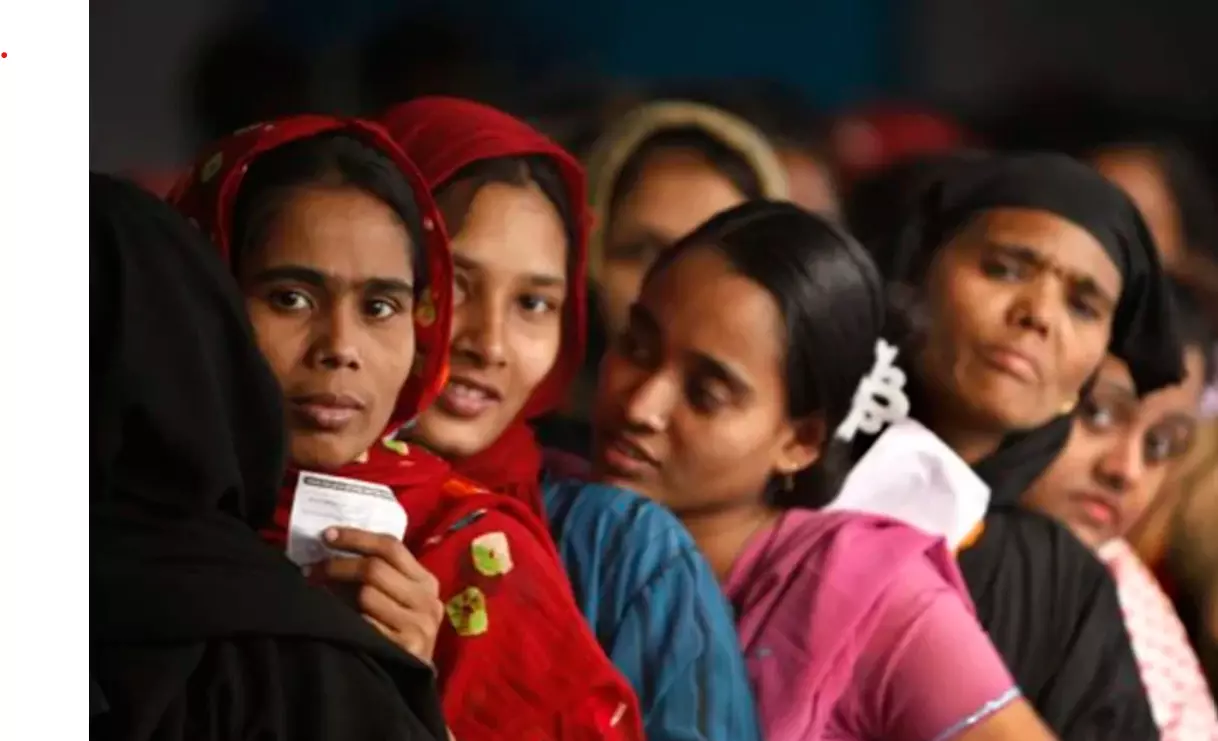Shattered plots!
With election results likely to align in favour of Sheikh Hasina-led Awami League in Bangladesh, opposition parties and geopolitical rivals may see their nefarious plans blow to smithereens

The stage was set for the 12th Parliamentary elections in Bangladesh on January 7, 2024. Speculations were rife that incumbent Prime Minister Sheikh Hasina had a thick edge over her political rivals and, as such, she is set to form the next government once again under her party, the Awami League (AL). Meanwhile, her adversaries like the Bangladesh Nationalist Party (BNP), with the active support of Jamaat-e-Islami (Jel) and other rightist fundamentalist parties with Jihadi mindset, have stepped up their violent and provocative activities, as evident in a number of cases where buses and other public transport were torched, and vandalism in public places continued. Many BNP leaders and their affiliates have been put behind bars, and their bails are refused by the court. The political atmosphere is fully charged and a little spark here and there may see more confrontation between the warring factions, which has the potential to ignite communal violence at the slightest provocation.
This said, the law-and-order agencies and the security establishment are fully feared to meet any contingency lest it spirals out of control. The Border Guards Bangladesh (BGB) has been deployed to maintain order and the government has issued (December 24) formal orders that the Bangladesh Army would be put on duty from January 3 to January 10. This was done as per the orders to extend “aid to the Civil power” for holding peaceful elections in 300 constituencies all over Bangladesh.
It may be recalled that the election canvassing went on till 8 am of January 5. According to a formal communication, out of a total of 27 political parties, 1,900 candidates were in the fray. Significantly, in this election, 5,16,000 members of the Ansar force were to be deployed on duty while Police and Rapid Action Battalion (RAB) deployment would comprise thousands of BGB, Coast Guard and other armed personnel.
In another election-related development, a special team belonging to the European Union (EU), under their leader David Warne, met (Dhaka December 26) an AL delegation under the leadership of General Secretary of the party, Obaidul Quader. The EU wanted a peaceful election with complete participation of the BNP and other parties opposed to the ruling AL. Obaidul Quader assured the delegation that the turnout of the Bangladesh voters will be more than satisfactory in number. He also claimed to have assured the EU delegation that all the contesting candidates were allowed to campaign freely, exhibiting their freedom of expression and speech, and there were no obstacles that would stop them from electioneering.
Meanwhile, public opinion is clearly swinging in the favour of the AL, and people in general have started condemning the BNP and its supporting affiliates for indulging in violent activities ahead of the elections, including damaging railway tracks and buses. Most recently, at Tejgaon Railway Station of Dhaka, three bogies of Mohangunj Express were set alight by the political miscreants, resulting in death of four passengers. Earlier, on December 13, another accident had occurred in Bhawal on the Dhaka–Mymensingh rail route. In this incident, the anti-national elements had pulled off the rail tracks as part of a well-designed sabotage. One passenger was killed and 13 were seriously injured. The BNP–Jamaat combine have come under severe criticism for such acts of subversion and violence, damaging government property. Hence, public opinion has steadily gone against the BNP and their supporters who are damaging the image of AL’s adversaries. The mainstream media has also sharpened its attack across print and electronic formats, castigating the perpetrators of violence. Their obvious target has been the BNP.
The US had been pressurising Bangladesh in an apparent bid to support the BNP and the Jamaat combine, which was not received well by Prime Minister Hasina, her party and the majority of Bangladeshi people. They accused the US Ambassador to Dhaka, Peter D Haas, for being blatant in interfering into the internal affairs of Bangladesh by openly meeting BNP and Jamaat leaders amid strong suspicion of US/CIA support to BNP topman Tarique Rahman. Tarique is currently operating from London, extending financial support to pro-Pakistan elements in Bangladesh who are trying their best to uproot Hasina from power as part of a larger design to install a BNP regime which, of course, is improbable.
Earlier, the US had been threatening to impose visa sanctions upon Bangladeshis as part of their strong-arm tactics. On their part, Bangladesh watchers reckon that the US Ambassador Peter D Haas has been undiplomatic in his handling of Bangladesh, inviting the wrath of the general populace.
According to Bangladesh watcher and JNU Professor Sanjay Bharadwaj, owing to the US imposing sanctions and visa restrictions on Bangladesh, it has provided the country a reason to incline towards China. However, Bharadwaj is hopeful that considering the strength of the ruling party (AL) and the weak opposition, election outcomes in Bangladesh look predictable. AL under Sheikh Hasina is likely to make a clean sweep.
The writer is a retired IPS officer, Adviser NatStrat, and a former National Security Advisor in Mauritius. Views expressed are personal



